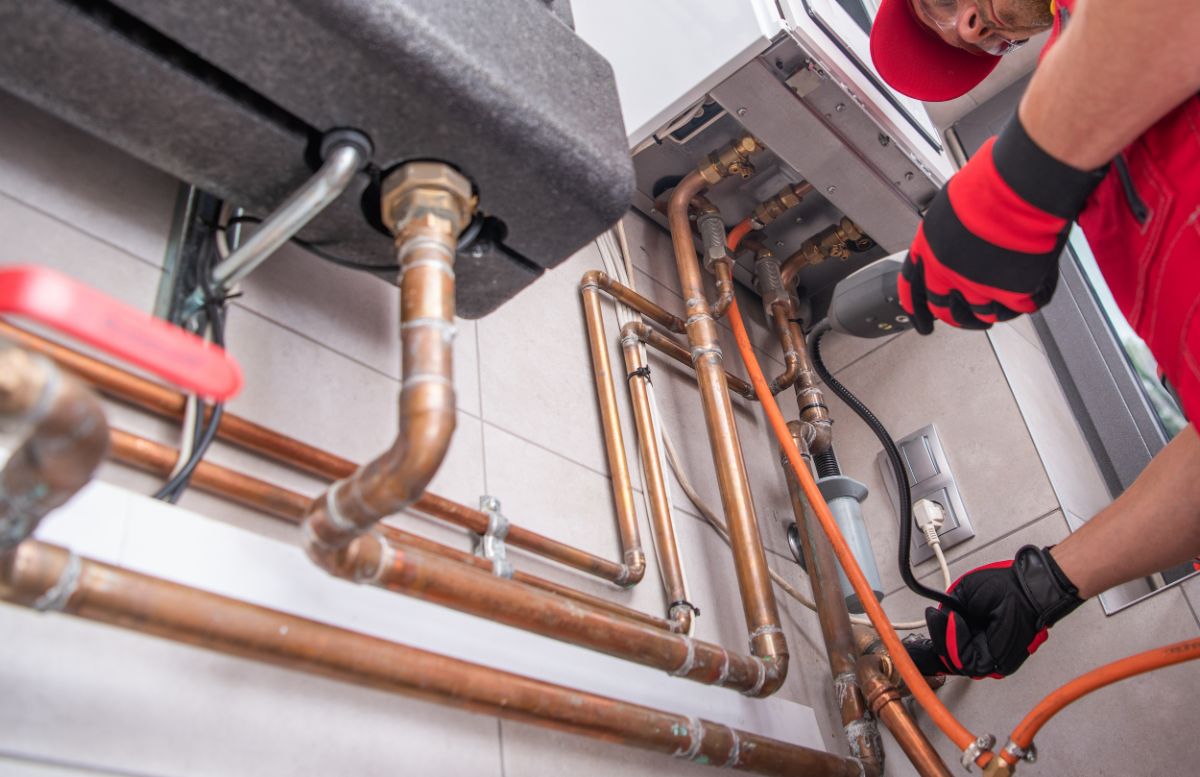
7 Signs of a Gas Leak in Your Home
What are the signs of a gas leak?
- Rotten egg smell
- Hissing noises
- Dead or dying indoor plants
- Higher gas bills
- White mist or fog
- Bubbles appearing in liquid
- Physical symptoms of gas poisoning
Gas is used to power many common household items, including your clothes dryers, gas stoves, furnaces, and many more. In fact, your home likely has at least one gas line running through your property to power appliances. However, the gas that these appliances use is flammable and poisonous, when breathed in. A gas leak in your piping system could result in health problems and costly property damage. So, you must know the signs of a gas leak, and what to do when you find one. Read on!
Rotten egg smell
Most gasses — especially natural gasses — are odorless and colorless. So, for safety purposes, utility companies use additives to give these gasses an artificial smell that is hard to miss.
Mercaptan and other odorants are what create the “rotten egg” smell that is associated with gas leaks. Some people also describe this smell as similar to sewage or sulfur. It’s one of the most common and easily noticeable signs of a gas leak. If you catch a whiff of the rotten egg at home, then it’s a good time to investigate.
If the rotten egg smell is coming from near your gas-powered appliances or from a gas line itself, then you have a gas leak on your hands.
Hissing noises
Another thing you should keep a lookout for are hissing noises. If there is a gas leak in your pipe or appliance, then it will produce a hissing noise — even when the gas is turned off. Be sure to check your pipes and appliances regularly, and listen for even the faintest hissing noise.
Dead or dying indoor plants

The plants inside your home can be sensitive to their surroundings, especially when they become exposed to the gas. This is because too much gas will prevent your plant’s roots from absorbing oxygen, which leads to eventual decay. Gas can also cause plants to become yellow and produce smaller-than-normal foliage.
Any dead, wilting, or stunted plant that struggles to recover is a potential sign of a gas leak. This is especially true if you’re normally a good plant caretaker and this problem seems to happen out of nowhere.
Higher gas bills

Similar to dealing with water leaks, a gas leak can increase the amount of gas that your home uses, which leads to higher utility bills than normal. Any unexpected increase in your bill may be caused by a gas leak somewhere on your property. Be sure to investigate if you notice this discrepancy.
White mist or fog
While most gasses are colorless, they can still create a type of white mist or fog inside your home. If you see an unusual murkiness around your property, it could mean your gas lines are experiencing a serious gas leak.
Bubbles appearing in liquid
Gas pipes also run underground outside the home. Any standing water, such as puddles or mud, will have bubbles if your property has a gas leak. This is created by the gas escaping the lines, dispersing through the soil, and breaking out into the air through the liquid. If you notice any bubbles appearing in liquid outdoors, it’s a sign you have a gas leak.
Physical symptoms of gas poisoning

When your home has a gas leak, you and your family are at risk of experiencing several health issues. This can show up as certain physical symptoms, such as:
- Trouble breathing
- Feelings of dizziness, fatigue, and lightheadedness
- Drowsiness or increased fatigue
- Nausea, headaches, vomiting, and other flu-like symptoms
- Nose, throat, and eye irritation
- Nosebleeds
- Chest pain
- Tinnitus (ringing in the ears)
- Sudden changes in mood, such as irritation and depression
- Decreased appetite
A gas leak can also affect the health of your pets, causing much of the same symptoms above. You must take immediate action if you notice any combination of these symptoms in your home.
What to do when you find a gas leak:
If you see any of these signs, you’re likely dealing with a gas leak. This is a serious problem and requires urgent action on your part to protect both your family and your home.
Once you find a gas leak, evacuate the area. Be sure to leave all doors open when you leave your home. Call your medical provider if your family is suffering from the physical effects of gas exposure. And, it would be a good idea to call a certified inspector to locate the gas leak. Once they do, contact a pipe supplier like Supreme Pipe. We can help you equip your property with durable and long-lasting gas pipe replacements in no time.
Key Takeaway
Most homes will have gas systems to power many appliances. You must know the warning signs of a gas leak in your home to protect yourself from exposure and fix this problem ASAP. Contact our team at Supreme Pipe for prompt, high-quality replacements — or send us an inquiry to learn more about our pipe products!


